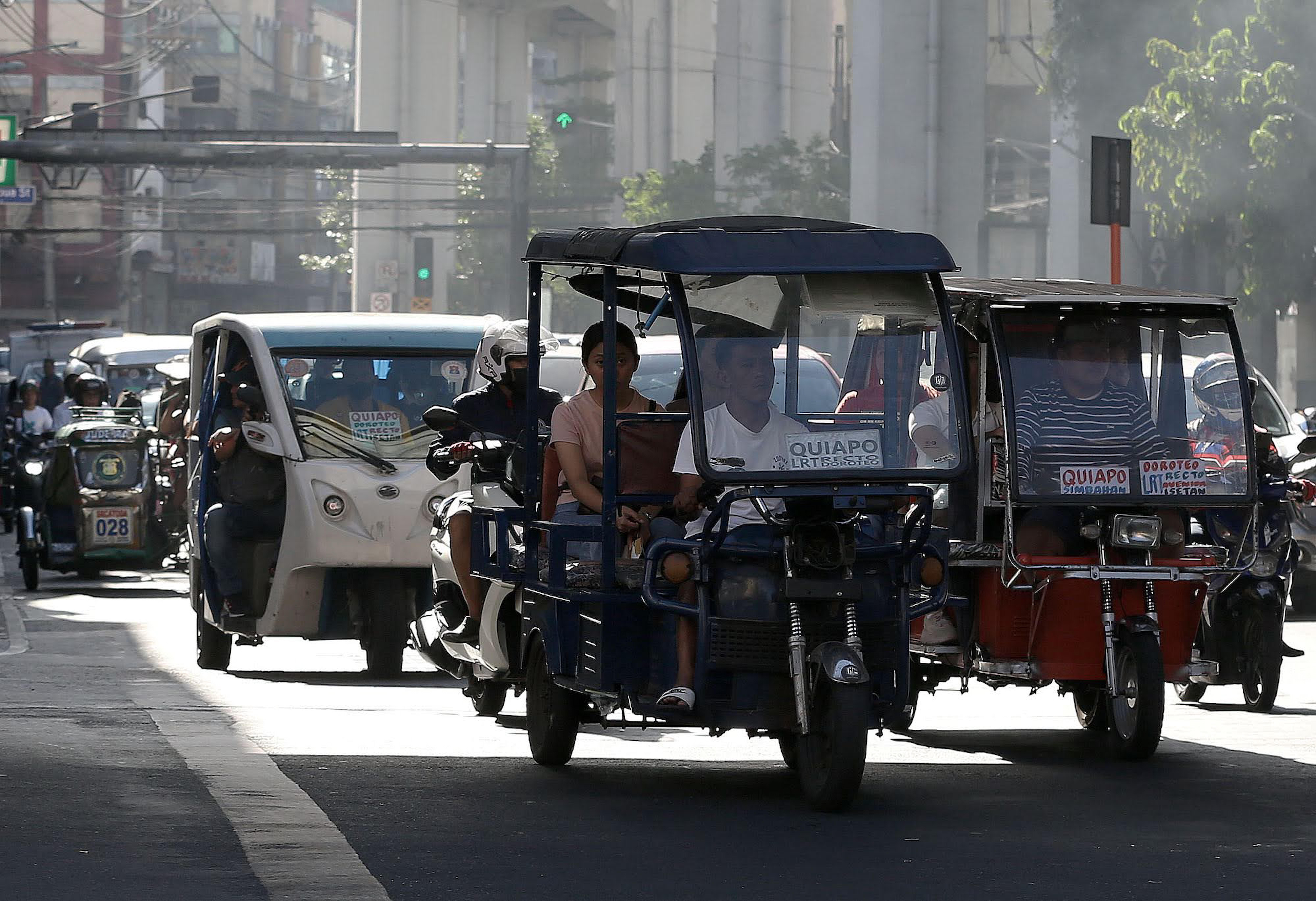
GROWTH DRIVER E-trikes are seen along Recto Avenue in Manila in this April 14, 2024, photo. Department of Science and Technology Secretary Renato Solidum Jr. said ramping up production of e-mobility products “will create more jobs in maintenance, after-sales service, and other services.” —Richard A. Reyes
MANILA, Philippines — President Marcos on Tuesday made a pitch for Filipino-designed electric vehicles (EV) as he urged businessmen to invest in the Philippines’ e-mobility industry.
The President made the call after he met with the Department of Science and Technology (DOST) and other concerned government agencies in Malacañang.
“For the mass production of Filipino-designed Electric Vehicles, we are actively inviting investors to help scale up the industry,” Marcos said on his Facebook and Instagram accounts.
He added: “The DOST, Department of Energy, Department of Transportation, and Department of Trade and Industry (DTI) will be working together to create new opportunities and to make sustainable transportation accessible to Filipinos.”
Incentives, initiatives
In a statement, the Presidential Communications Office (PCO) said the President pushed for “enhanced initiatives and incentives” to entice more investors to support locally produced e-mobility products.
“We need investors to come in. Of course we’ll provide incentives from the government. That’s what we need to do. We need incentives for investors to come in, hopefully local. But we’ll take anybody who’s interested,” Marcos said.
The President added: “They will have to undertake the production design to scale it up to a level to actually make a difference to the market.”
He said the difficult part is scaling up production of electric vehicles and the needed funds for it.
“We’re always running into the same problem—it’s the scaling up. Production design then the investment… That’s the hardest part of it. A high school science student can design an e-trike. There’s no problem there because the technology is so simple, so well-understood. But it’s the scaling,” he said.
In response, DOST Secretary Renato Solidum Jr. said potential investors, manufacturers, and fabricators are just waiting for the government’s policy statement on the e-mobility industry.
E-trikes
Solidum said ramping up production of e-mobility products “will create more jobs in maintenance, after-sales service, and other services.”
The PCO said there are 25,196 registered e-vehicles and 705 EV charging stations (EVCS)in the country, with 92 accredited EVCS providers as of Oct. 18, which generated 10,407 new jobs and P1.99 billion in investments.
Solidum noted that e-trikes will be mass-produced soon in Isabela with many customers waiting for the e-trikes to hit the market, while local officials and tricycle operators in General Santos City are also interested in the production of e-trikes.
He added that the DOST is pursuing initiatives that prioritize local expertise and designs of e-vehicles, and is implementing an e-mobility program map that includes the conversion of fuel-powered tricycles and buses into electricity-run vehicles.
The DOST has also developed a hybrid electric train and an electric boat, Solidum said.
Meanwhile, the DTI is crafting an Electric Vehicle Industry Development roadmap that will include policies and possible incentives to support the production of e-vehicles.
The government is also working with locally owned ToJo Motors to crafting policies to make it conducive for locally made e-trikes and e-jeepneys to operate in the Philippines.